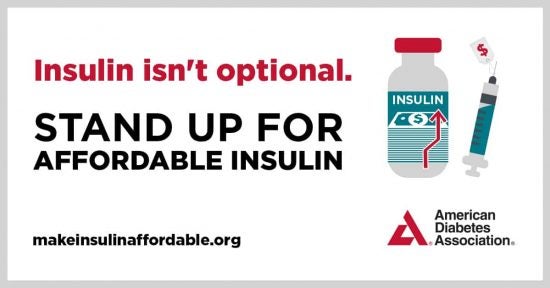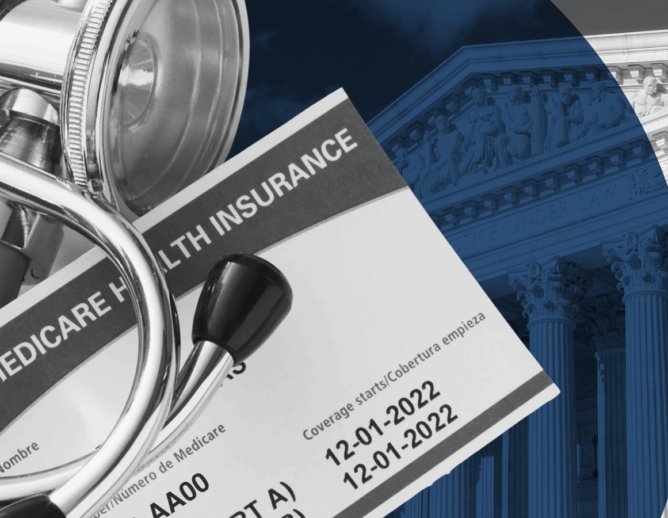
Last month, the O’Neill Institute partnered with Public Citizen, a non-profit consumer rights advocacy group, to organize the Affordable Medicines Now conference at the Georgetown University Law Center in Washington, D.C. The conference was designed to build skills and knowledge in the affordable medicines community, including activists, patients, health professionals, and policy makers at the state, federal, and international levels. The three-day conference covered a vast range of topics, from conversations on how to use intersectionality and inclusion for the creation of strong movements to the opioid epidemic and government funding and responsibility for access to medicines.
The conference included an “Insulin 4 All” panel, drawing attention to an important issue that is often unseen and underreported. The panel featured independent advocates and representatives from organizations such as T1International, The BETES Organization, and People of Faith for Access to Medicines, which are leading the movement for affordable insulin.
In 1921, researchers in Toronto successfully isolated insulin for the first time. After filing for a patent, they sold the patent to the University of Toronto for $3 so that no company would have a monopoly and patients would have affordable access to the life-saving drug. Despite their efforts, insulin prices have increased over 1,123% since 1996. Even with insurance, people are paying an average of at least $210 per month for insulin alone and up to 50% of their annual income on diabetes costs.
Over 30 million Americans have diabetes, of which approximately 1.25 million have type 1 diabetes and approximately 29 million have type 2 diabetes. Type 1 diabetes is a condition in which the pancreas stops producing insulin. People with type 1 diabetes depend on injections of insulin to lower their blood sugar. Without any insulin, they will die within anywhere between two to seven days. Without sufficient insulin, people with type 1 diabetes face a number of health complications, which can cause early death. Unlike type 1 diabetes, type 2 diabetes is a condition in which the pancreas still makes insulin, but the body cannot use it efficiently, resulting in high blood sugar levels. While people with type 2 diabetes can lower high blood sugar levels with diet and exercise, nearly one-third of them must also inject insulin on a daily basis. A recent study found that the rapid increase in insulin prices has resulted in around 25% of people with diabetes not taking insulin as they should, in a process known as self-rationing. Self-rationing can result in serious and potentially life-threatening complications such as blindness, loss of limbs, kidney failure, and death.
Hannah Crabtree, an independent advocate for the “Insulin 4 All” movement and one of the panelists at the conference, discussed the deadly effects of the high cost of insulin. Crabtree was diagnosed with type 1 diabetes when she was just 4 years old. Her mother also had type 1 diabetes and died in 2006 due to diabetes complications resulting from rationing insulin. Since her mother rarely had an insulin prescription of her own, she would survive off of leftovers from Crabtree’s prescription between refills.
Unfortunately, this story is not unique. People are forced to decide between paying rent and buying food for their children or buying insulin. While the Affordable Care Act (ACA) protects those with diabetes and others with pre-existing conditions from being discriminated against when getting health care coverage, efforts to repeal or undermine the ACA would be devastating for millions of Americans who depend on insulin and could mean they have to pay thousands of dollars a month to live.
There has been a push from the diabetes community to improve transparency in the way that insulin is priced. All the individuals and organizations represented on the “Insulin 4 All” panel are fighting for transparency throughout the insulin supply chain. Nevada is the first state to sign into law legislation that facilitates insulin transparency. Under the Nevada law, which was signed by Governor Brian Sandoval in June 2017, insulin manufacturers are required to annually disclose information about list price, profits made on insulin products, and discounts granted to pharmacy benefit managers. Manufacturers also must explain to state officials, in writing, any insulin price hike above the previous year’s inflation rate within 90 days, and will be fined $5000 per day if they fail to comply. Although two pharmaceutical groups are challenging the law, it is a big step toward insulin transparency. The law offers a model for other states to improve price transparency. We must continue and expand efforts to ensure affordable access to insulin for all people with diabetes.
This blog post was co-authored by Ainslie Tisdale, an undergraduate student at the University of Texas at Austin and a summer intern at the O’Neill Institute for National and Global Health Law.



